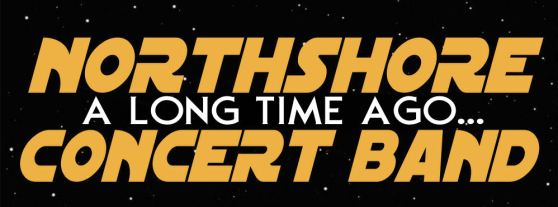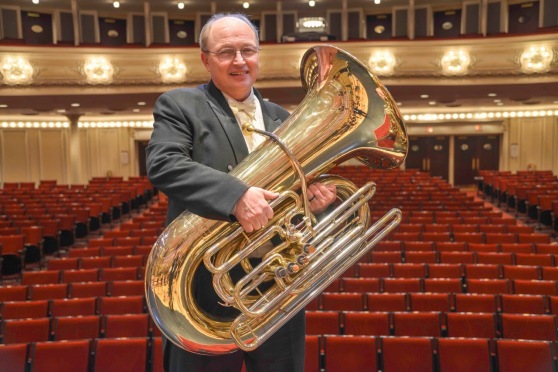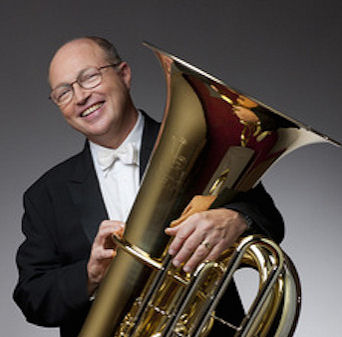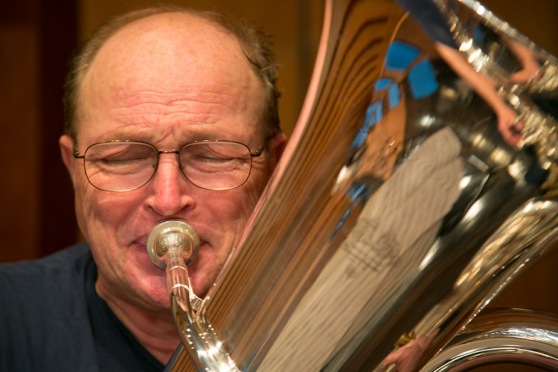Flourishes and Meditations on a Renaissance Theme by composer Michael Gandolfi is a highlight of our Summer 2018 program.

Mr. Gandolfi describes this work:
‘Flourishes and Meditations on a Renaissance Theme’ is a set of fantasy-variations, on an anonymous Renaissance lute piece titled ‘Spagnoletta’ that I played on my guitar for decades throughout my youthful years. I chose to write this piece upon being commissioned by the President’s Own United States Marine Band, directed by Michael Colburn, at the time of composition. I intended it to be a showpiece for that ensemble.

A self-taught guitarist, Michael Gandolfi began playing rock and jazz at age eight and eventually began formal instruction in composition during his teens. He earned his bachelor and master of music degrees from the New England Conservatory and studied with Oliver Knussen at the Tanglewood Music Center. He currently serves on the composition faculty at both institutions. Gandolfi has collaborated with many important figures in contemporary American music, participating in the Composers Conference at Wellesley College with Mario Davidovsky and Ross Lee Finney and teaching composition at Tanglewood with Osvaldo Golijov. His catalog contains several works for orchestra, including Impressions from “The Garden of Cosmic Speculation,” which has been championed by conductor Robert Spano, with recent or upcoming performances by the New World Symphony and the symphony orchestras of Atlanta and Houston. Gandolfi has also written for chamber, theater, and jazz/funk ensembles.
We contacted Mr. Gandolfi and asked him to share with us his journey in music, musical influences and inspirations, and words of advice that he has for young musicians.
Please tell us a bit about your journey in music and in life. I was fortunate to have been born into a musical household, with my two older sisters studying classical piano. There were two pianos in the house where I was born and lots of music making there. However, I was more interested in the Beatles than Beethoven, Bach or Brahms in those days. I taught myself to play the guitar and formed rock bands in grade school, blues bands in junior high school and jazz bands in high school. I loved to improvise (and still do). I sought formal lessons in junior high school and was fortunate to find a guitar teacher in my town of Reading Massachusetts, Edward Marino, who was also a composer. He introduced me to music theory and 20th-century music (Bartok, Stravinsky, Hindemith, Schonberg, et al). I always sought the most cutting-edge music then. In high school I met William Thomas McKinley, a fine composer, pianist, and professor of composition at the New England Conservatory of Music. I had lessons with him, became his assistant, and eventually enrolled in the New England Conservatory of Music after briefly studying at the Berklee College of Music. My other mentors were Donald Martino, John Heiss. Malcolm Peyton (all of whom I met at NEC), Ross Lee Finney, Mario Davidovsky, and Oliver Knussen (all of whom I worked with as a fellow at various Summer programs – Yale, the Composers’ Conference, Tanglewood, etc.). After graduation from NEC my musical life revolved around New York City, where groups such as Speculum Musicae, Parnassus, and the Orpheus Chamber Orchestra commissioned and performed works of mine. I survived in those days on a few commissions and a healthy dose of part-time teaching at Phillips Academy – Andover. I took my first college teaching appointment at Harvard University in 1996 and later joined the faculty at the New England Conservatory. I also joined the faculty of the Tanglewood Music Center in 1997, having been a visiting composer and performer at Tanglewood every year (except one) following my 1986 fellowship year. I was fortunate to have had so many fine musicians and ensembles commissioning, performing and recording my music, starting with the Orpheus Chamber Orchestra in 1988 and continuing to this day with the Boston Symphony Orchestra and the Atlanta Symphony Orchestra. I have had too many fine affiliations to list them all, but I will also credit the Boston Modern Orchestra Project, Boston Musica Viva, the Melrose Symphony Orchestra (I also have had very fruitful creative collaborations with community orchestras), The New England Philharmonic, the Grant Park Orchestra, the Chicago Sinfonietta, the Houston Symphony, the New World Symphony and the Cabrillo Festival, as among those with whom I have had a lasting relationship. Oddly, I did not write my first wind ensemble or concert band piece until my mid-career. That piece, ‘Vientos y Tangos,’ was commissioned in honor of Frank Battisti’s 70th birthday and received its premiere under the baton of Michael Colburn and the United States marine Band. They subsequently recorded it and toured with it, and on the success of that piece, the President’s Own USMB commissioned what became ‘Flourishes and Meditations on a Renaissance Theme. As for my non musical life, I have a very keen interest in astronomy, physics, mathematics, and all things technology related. I am an avid baseball fan, love to read (mostly on Kindle these days, which has solved my bookshelf-space problem), and I continue to gain from teaching my students.
What have been some of your musical influences? The Beatles, Led Zeppelin, Bob Dylan, Allan Holdsworth, Van Halen, Sting, John Coltrane, Miles Davis, Herbie Hancock, Chick Corea, John Schofield, Pat Metheny, Joe Pass, Wes Montgomery, Mike Stern, J.S. Bach, Haydn, Mozart, Brahms, Shostakovitch, Tchaikovsky, Stravinsky, Ives, Harbison, Bolcom, Knussen, Ruth Crawford- Seeger, Ligeti, Stockhausen, Boulez, Schuller, Joan tower, Donald Martino, Babbitt, Carter, Reich, Glass, John Adams, John Corigliano, Sofia Gubaidulina, etc., etc. I have eclectic tastes, far too numerous to indicate in this short list.
Please share a bit about your favorite musical memory? I had a masterclass with Leonard Bernstein while I was a fellow at Tanglewood in 1986. It was surreal. It was a pot-luck masterclass, nine fellows, a visiting composer (Robert Saxton) and Oliver Knussen as host. The ‘class’ started at 5:00 PM and was still going-strong at 2:00 AM when I left. The following day I learned that it concluded at 3:00 AM! Later that morning, 10:00 AM to be precise, Maestro Bernstein conducted ‘The Rite of Spring’ with the Tanglewood Music Center Orchestra. Amazing! I learned a great deal that evening and at that rehearsal.
What’s on your iPod? All of the Haydn symphonies (they’re ALL good by the way – no weak ones), all of the symphonies of Nikolai Myaskovsky, and all of the Shostakovich, Bruckner, and Prokofiev symphonies, as well as Alfred Brendel’s complete Beethoven piano sonatas. I place these giant oeuvres on my iPhone and listen to them in a loop whenever I am out-and-about. I rotate the list to other repertoire as time progresses.
Which composer/musician – past or present – would you most like to meet for a coffee and why? J.S. Bach. My all-time favorite.
What inspires you? Notes! Physics. Structure. Beauty (defined as anything that creates goosebumps)
What do you do to relax? ? I’m not sure that I ever do. I love exercise and long vigorous walks that I do on a daily basis. I used to find playing golf relaxing, but then I got too score-conscious and I no longer found it relaxing so I stopped playing. I do go to the range in the summertime at Tanglewood. I find that relaxing.
Do you have any advice for young musicians?Work hard but engage your mind in whatever takes you beyond the ordinary.
Please share any thoughts that you may have about the Northshore Concert Band. I have known the Northshore Concert Band to be one of our nation’s finest community concert bands. They set the best example of the heights that can be achieved by applying hard work and dedication to the art of music-making. They also show other concert bands the riches and rewards of performing challenging and wide-ranging repertoire.
Please add anything else that you would like our audience to know about you. That I love life, music, and storytelling. I believe that storytelling is the principal expression of being human. It is what separates us from the rest of the work and art (especially music) is the pinnacle of this story-telling.
A special thank you to Mr. Gandolfi for speaking with us and giving permission to reproduce this material. Please visit his website www.michaelgandolfi.com to learn more about this great composer.

A Long Time Ago…
Sunday, June 17, 2018, 3:00 pm
Pick-Staiger Concert Hall, Northwestern University
50 Arts Circle Drive, Evanston, Illinois
Learn more about the Northshore Concert Band at www.northshoreband.org
Follow this blog to receive more informative and entertaining interviews.






